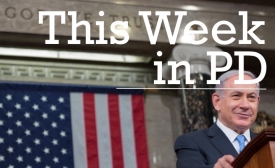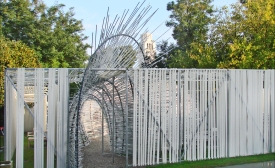united states

This week in Public Diplomacy, we saw a surge of stories about Israel regarding their nation brand and Prime Minister Benjamin Netanyahu's visit to the United States.
Seoul and Washington are striving to minimize the fallout from a knife attack against the U.S. ambassador here which triggered concerns that it may dampen public sentiment and set hurdles for the allies’ future cooperation.
The board, which oversees United States government-supported international news media like Voice of America and Radio Free Europe/Radio Liberty, is scheduled to meet on Friday to begin looking for a successor to Mr. Lack.
Mr Nye, a veteran observer of global affairs, is more optimistic. He expects that America will still play the central role in the global balance of power in the 2040s. What, after all, is the alternative?
The phrase public diplomacy may not have become an official term in the popular press until World War I. But it was during the Civil War that deliberate, state sponsored programs began attempting to influence the public mind abroad about American foreign policy.

Nicholas Cull, Professor of Public Diplomacy and Director of the USC Master of Public Diplomacy program, explores the interplay of cultural heritage and global engagement at the biannual Venice Biennale of Architecture.
Nowhere is the contrast between Benedict XVI and Francis more tangible than in the degree to which the papacy seems to have recovered its diplomatic and geopolitical swagger. The normalization of relations between the U.S. and Cuba in December 2014 came about in part thanks to Francis, who wrote private letters to President Obama and Cuban president Raúl Castro that reportedly helped break the ice between the two leaders.
The United States ambassador to South Korea, Mark W. Lippert, was attacked Thursday morning by a knife-wielding man who said he opposed joint American-South Korean military exercises, according to the South Korean police and journalists who were at the scene.







